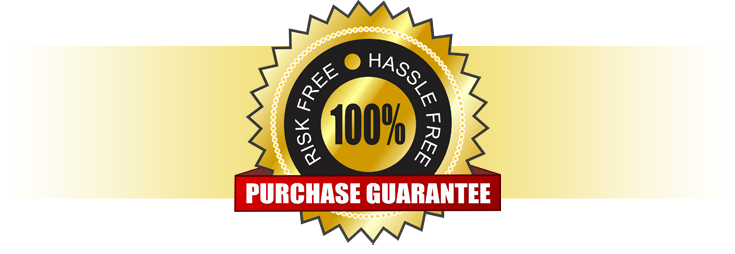Defining an “Ethical Dilemma;” Distinguishing Facts from Ethical Issues; Legal Issues from Ethical Issues
Identifying ethical and legal issues can be a bit tricky at first, but we will do it in each week. It is the essence of the course, of business ethics and of ethical decision making in business.
Let‘s begin with the easiest definition: Legal issues
A legal issue arises when the law of a given jurisdiction—city, county, state, country—has something to say about the legal permissibility or legal consequence of a course of action.
For example: There are federal laws that restrict the amount of CO2 emissions that a Foundry can send into the air. Thus, when considering what sort of pollution control devices a Foundry will install, the legal issue of compliance with this law arises.
There are federal and state laws that prescribe the minimum wage that can be paid workers. [state minimum wages are often higher than the federal minimum wage]. Thus, in deciding how much to pay workers who are covered by these laws, the legal issue of compliance is raised.
Law is passed by legislative or administrative bodies or it is announced by judges in specific court decisions. The courts and executive authorities, such as the police, are charged with enforcing the law, whether by awarding damages to a civil plaintiff, or imposing fines or incarceration on those violating criminal laws.
Now we should note that many laws enjoy widespread approval, as appropriate restrictions on behavior. Included in these would be laws prohibiting murder, rape, robbery, etc. Others may be questioned by some citizens, such as laws that restrict gun ownership, or laws that require us to pay income taxes. The point is that laws are the product of the conscious actions of people, usually government officials like Congresspersons, senators and judges.
Why are laws important to business decision-makers?
There are several possible answers.
1, If the business is found to have violated the law, it will have to pay fines, and sometimes, its managers may face criminal penalties. This is an important downside of breaking the law.
Of course, a business can ―get away with‖ violating the law.
2. The law may codify an important moral restraint on the business, as is the case with anti-pollution laws, which are aimed at minimizing the environmental damage of business operations. That is, a manager may agree with the law, inasmuch as he recognizes a responsibility to safeguard the environment.
3. Consumers may regard the law as important, and withdraw their patronage if they learn of the illegal/unethical behavior of the business.
Contrasting Morality or Ethics with Law
However one defines morality or ethics, it is clear that compliance with law, even if ethically significant, does not necessarily satisfy all ethical or moral requirements.
A simple example:
The law may require a foundry to limit the amount of a cancer-causing chemical it uses in production that is flushed into nearby waterways. Meeting this standard is all the law requires. But if a number of downstream inhabitants still face significantly greater risk of cancer, an ethical issue arises: Is it ethically or morally permissible to run the business in such a way as to create a significantly increased risk of cancer in ―innocent‖ homeowners?
For both individuals and businesses, morality may require more than law. There is no law, for example, prohibiting lying to your spouse, or being unkind to your neighbor.
An ethical issue is one that is reflected in actions, conduct in various situations, such as how we treat one another (and, some would say, animals and the environment). For example, do our actions reflect the ethical issues of respect for others, show concern for others, show honesty, show dishonesty, show manipulation, etc.?
You will be reading about a number of different ―ethical theories‖ in this class. Ethical theories can help us analyze situations and problems and thus, help us make decisions about ethical dilemmas, about how to act in certain situations, about how to resolve ethical problems. All decisions need to be justified and explained. For example, if a CEO decides to close a plant, the CEO has to justify and explain this decision to the Board of Directors, shareholders. The CEO cannot just say, “I am closing a plant because I think it is best.” There has to be detailed justification for this plant closing – and justification for all decisions we make as individuals and companies.
For example, one theory you will study is Utilitarianism which, simply, is a consequences- based theory that guides ethical behavior by examining all possible negative and positive consequences of a given decision/action. If a CEO has to decision whether to close a plant
that is not profitable, the CEO can consider applying Utilitarianism and thus, examining all possible consequences and choosing the decision that has the most positive consequence for the greatest number of affected people or groups. The CEO knows closing an unprofitable plant will result in short term loss of jobs and loss of income for the community – these are 2 consequences. On the other hand the CEO knows if the unprofitable plant remains open, while there will be no short term loss of jobs or loss of community income, in the long term as costs will continue to rise, profits will continue to drop and this may have far-reaching impact on the entire company and all its internal and external stakeholders and likely will ultimately result in the company having to lay off more employees, close more than 1 plant, loss of revenue for investors and shareholders, loss of market share, etc. SO, the CEO may decide, by applying Utilitarianism, that the decision to close 1 plant now will have less negative consequences in the long term, and will be better for the greatest number of employees and other stakeholders in the long term. Thus, the CEO can use Utilitarianism to justify the decision to close 1 plant now.
Each theory can help us decide what action is ethical, and best under the circumstances. Not all theories will result in agreement in a decision or what is “right”, some theories will conflict with each another. For example, if the CEO in the above example applies Utilitarianism and Egoism theories to help make the plant closing decision, the 2 theories may not guide the decision in the same direction; they may conflict, but the CEO has to decide which theory most logically and clearly justifies the decision.
Theories can help us recognize what is ethical conduct in a given situation; theories can help us make decisions that are ethical, lawful and justifiable. Theories can guide and restrict our behavior in various situations.
Distinguishing Facts from Ethical Issues
Suppose we pay our workers no more than the minimum wage, when they work in dangerous difficult jobs that require some skill; we are a profitable business; and that wage keeps our employees below the poverty level. Suppose also that 80% of the employees must use food stamps and Medicaid to get by on this wage.
These are the facts. There are no normative judgments here, no ―oughts‖ no assertion of rights. These are all facts.
The ethical issue, however, is the underlying ethical/moral value that is reflected in the facts and actions of someone or some group or some organization.
For example, if a company does not pay adequate wages or provide a safe working environment, what does this tell us about the company’s ethical/moral values? What is unethical about the company’s conduct? What is “wrong” with the action of the company?
The answer is the company’s conduct shows no respect for employees’ welfare (an underlying ethical issue), lack of concern for the safety of workers (an underlying ethical issue), unfairness to workers (an underlying ethical issue), and perhaps even suggests greed (an underlying ethical issue). All these are underlying ethical issues reflected by the company’s conduct.
Another example:
A told B that A would babysit B’s children while B went to a job interview. A did not show up to babysit. These are facts.
Was it right to have made and broken the promise? What does this action of not keeping the promise to babysit say about A’s ethical/moral values? What is unethical/”wrong” about breaking the promise?
This action of not showing up as promised suggests the underlying ethical issues of lack of concern for a friend’s needs, or lack of integrity, or lack of respect for a friend, lack of honor in keeping promises, etc. These are underlying ethical issues related to the action of not keeping a promise to show up and babysit for a friend.
Comments re: Ethical Issues
Ethical Issues:
arise from facts and situations (but are different from facts and legal issues) and show the ethical values reflected in actions;
can usually be defined in a single word, i.e., honesty, dishonesty, trust, etc, or in brief phrases, i.e., lack of full disclosure, lack of respect for others’ safety, respect for others’ needs, etc.;
can be negative (i.e, dishonesty, manipulation, greed, etc) or positive (i.e., honesty, respect, concern for others’ safety, etc.);
can often be defined by asking the question, “What is ‗unethical’ or ‗wrong‘ with X’s actions?”, or “Why is C’s conduct unethical?” etc.;
cannot be listed in a finite list of ethical issues as there are many, but the list is not endless – many of the same ethical issues arise repeatedly in business;
can be fully explained in the context of related facts, or a case scenario, etc.; are directly related to facts in a fact pattern, but are different from facts.
Ethical Dilemmas
An ethical dilemma (for a business) may be defined as a multi-faceted problem a company faces, which is described in an either/or statement that defines options open to a
company to resolve an ethical problem; the either / or statement also include possible consequences of each option. Virtually all options have ethical and business consequences. Business consequences, which are understood in terms of the best interests of the business, include those related to profits, reputation, public image, shareholder value. Ethical consequences or factors may include whether compensation is fair to employees, advertisements are truthful, promises or contracts are broken, misfortune or disadvantage is exploited, harm is visited on individuals, including stakeholders, or on the broader society.
Dilemmas typically start with the need to make a decision on whether to react to the ethical concerns that have arisen, or not. That is probably the only point at which they are truly ―either/or‖ decisions: Do we keep things as they are and ignore the problem, or look to a feasible way to resolve it (always with a view to our other responsibilities, such as maintaining share value, and considering all other stakeholders‘)?
Then, unless action is rejected, the decision becomes more complicated, and a number of further choices would need to be made.
Example: Hypothetical Scenario:
Co. A was founded in Baltimore, MD in 1923. In 1924, Co. A began to manufacture sugar cookies. The company continued to grow, expand its manufacturing operations until, in 1945, Co. A “went public” and sold its stock on the NYSE for $10/per share. The value of the stock has increased to a value of $100/per share in 2012.
In 2011, Co. A stated in its annual financial report to stockholders that its 2011 profit was $5 million, when in fact its profit was only $3 million. This error was a typo, and not an intentional fraudulent act. The new CEO has discovered this falsification and is concerned about ethical and legal implications.
General Facts: underlined above. These facts are generally relevant to the company but not relevant to any ethical issues related to Co. A.
Relevant Facts (relevant to ethical issues): in italics above. These facts are directly related to, and relevant to ethical dilemmas and issues. To determine the precise ethical issue, ask what ethical concerns/ issues are raised by these facts.
Ethical Dilemma: Essentially, A can either do nothing or publish an accurate report.
The ethical dilemma can be described as:
Co. A can EITHER do nothing and risk the error being discovered causing negative public relations with consumers and shareholders, and possibly causing legal action OR Co A can
publish a revised, accurate financial report and risk some short-term negative reaction from consumers and shareholders but avoid legal action and long term negative reaction by being honest.
Possible consequents/Resolutions:
A can do nothing, and risk that the false report will be discovered. The possible effects will be that this would likely result in negative publicity, backlash from shareholders and possible legal investigation/charges. Either the truth will become known or it will not. If it is not found out, then, for the time being, each major stakeholder category—employees, shareholders. Customers and communities– would be unaffected. If it does become known however, every major stakeholder will suffer. Costs will be incurred to deal with legal claims so that share value may fall and future R&D would be less well funded. Production may have to be cut back, which affects employee job security and the community. Similarly, the price to be paid for negative publicity will also affect these stakeholders in the same way.
A can report the mistake to the SEC, taking full responsibility for the inadvertent error. The effects will be……………..
A can report the error to the SEC and make a public announcement, apologizing for the error. The effects will be……………..
A can report the error to the SEC and make a public announcement, apologizing for the error, and laying out compensation that may be appropriate, for those provably harmed. The effects will be……………..
A can do any of these things, each of which concretely addresses the ethical issue, and it can also implement tighter auditing. The effects will be……………
Thus, when dealing with the ethical issue of a failure of disclosure to those who have a right to accurate information, there can be many alternative resolutions.
Ethical Issues related to this Dilemma
1. If Co. A does nothing and does not report the error in its financial report, what is unethical/wrong with this action? The answer is underlying ethical issues reflected in this conduct that could include dishonesty, lack of full disclosure, fairness, lack of respect or concern for shareholders, lack of respect for law, lack of respect for
shareholders’ right to know the financial status of Company A, lack of concern for welfare of Company A, trust, distrust, lack of accountability for its actions, etc.
2. If Co. A does reveal the error and correct it with accurate financial information, underlying ethical issues reflected in this conduct are honesty, fairness, full disclosure, trust, respect for shareholders’ rights, respect for consumers, concern for the welfare of Company A, trust, accountability for its actions, respect for legal regulations related to financial reporting of public companies, etc.
Thus, when dealing with the ethical issue of a failure of disclosure to those who have a right to accurate information, there can be many alternative resolutions.
Are you looking for a similar paper or any other quality academic essay? Then look no further. Our research paper writing service is what you require. Our team of experienced writers is on standby to deliver to you an original paper as per your specified instructions with zero plagiarism guaranteed. This is the perfect way you can prepare your own unique academic paper and score the grades you deserve.
[meteor_slideshow slideshow="slide2"]Use the order calculator below and get ordering with idealtermpapers.com now! Contact our live support team for any assistance or inquiry.
[order_calculator]






 info@idealtermpapers.com
info@idealtermpapers.com






